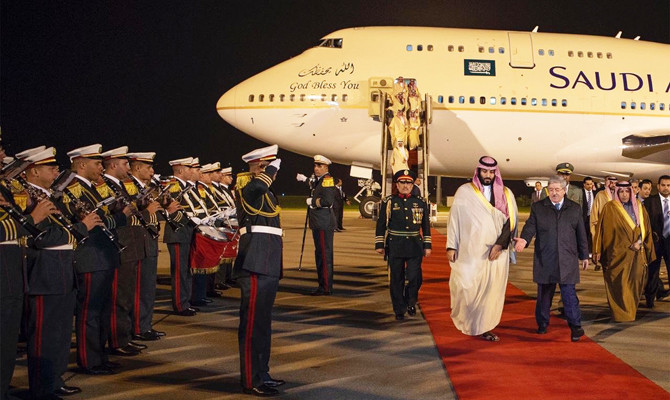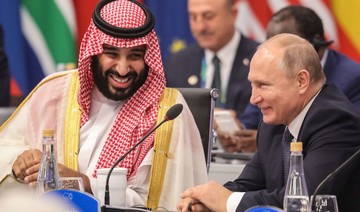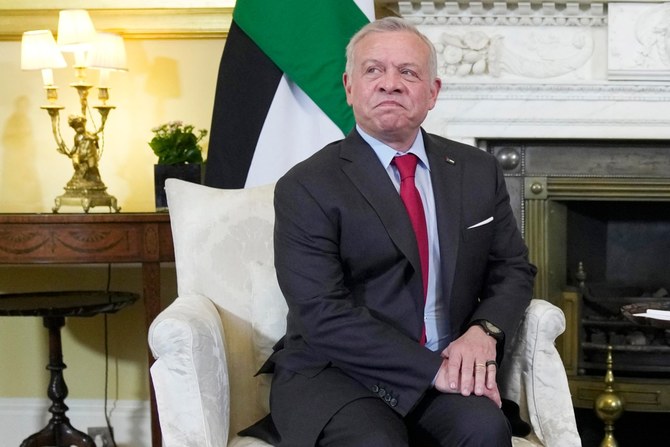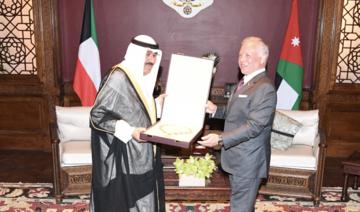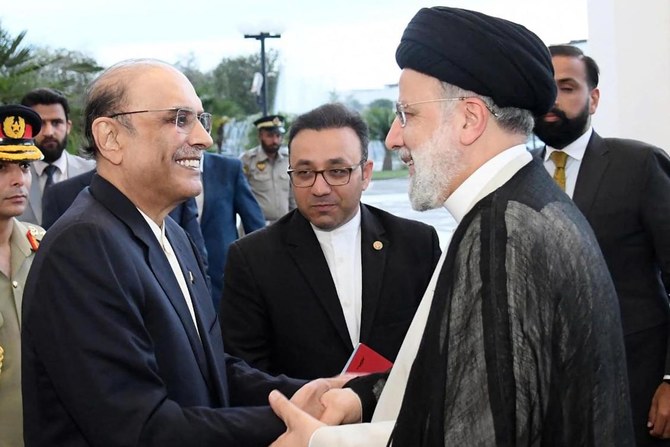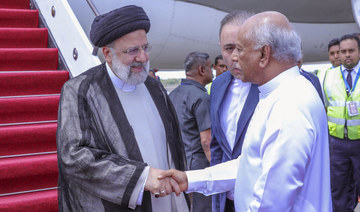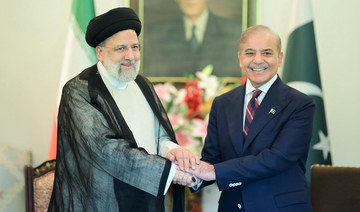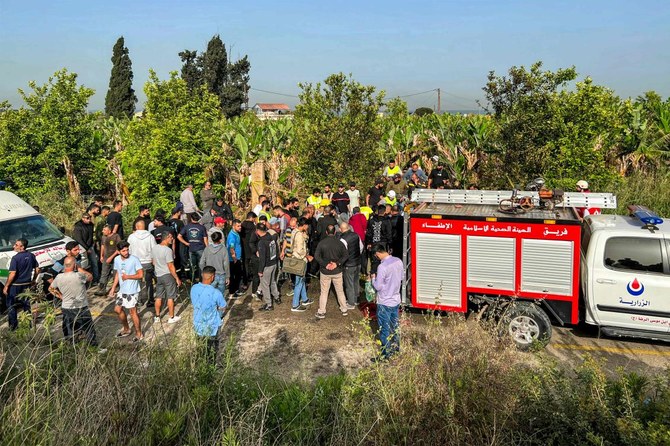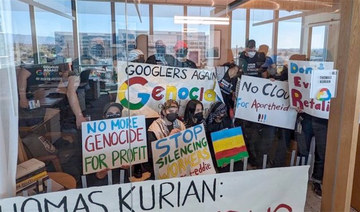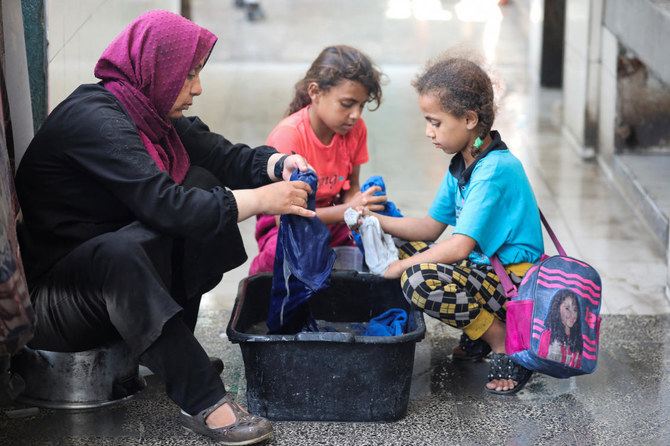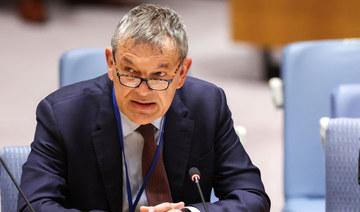ALGIERS: Saudi Crown Prince Mohammed bin Salman arrived in Algiers on Sunday for a two-day official visit to Algeria, heading a high-ranking delegation.
Prime Minister Ahmed Ouyahia received the prince at the airport, where an official reception ceremony was held. After that the prime minister accompanied him to his residence, Saudi Press Agency said
Algerian-Saudi investments and trade relations, especially in the oil and petrochemical sectors, will be discussed during the two-day visit, the Algeria Press Agency earlier announced.
The crown prince arrived in Algeria from Mauritania, where he resumed a tour of Arab countries after attending the G20 summit in Argentina.
In the Mauritanian capital Nouakchott early Sunday, he was welcomed by President Mohamed Ould Abdel Aziz. The crown prince conveyed King Salman’s greetings to the Mauritanian leader, SPA said.
In an extended meeting, they discussed bilateral relations and ways to further development opportunities in the region.
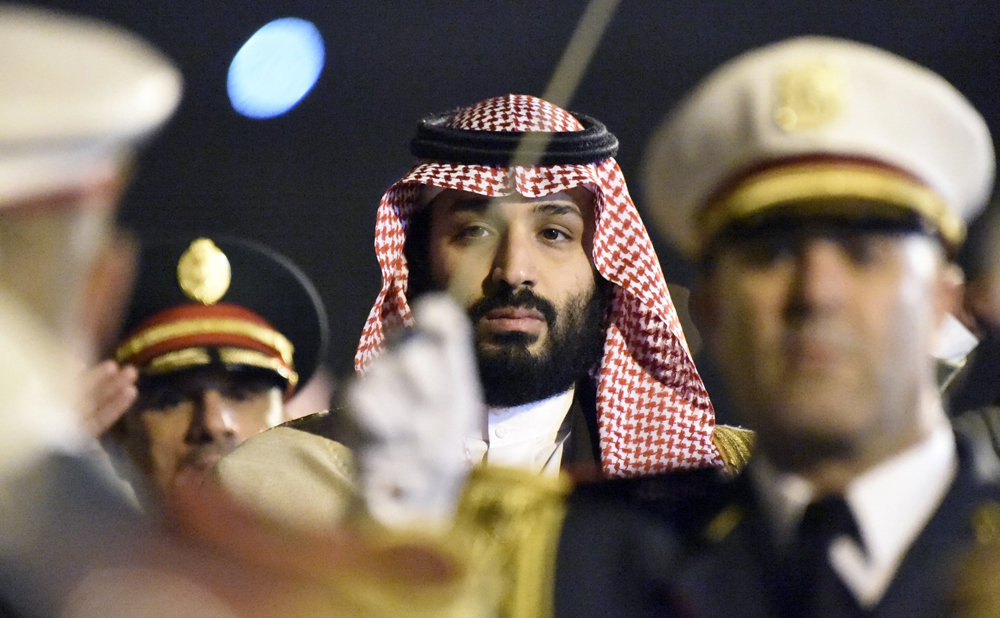
Crown Prince Mohammed bin Salman is seen behind a military band upon his arrival at Algiers International Airport on Dec. 2, 2018. (AFP / RYAD KRAMDI)
Saudi Arabia and Mauritania signed three agreements, and the crown prince announced a directive by the monarch to establish the King Salman Hospital in Nouakchott with a capacity of 300 beds. Dr. Hazza Al-Mutairi, Saudi ambassador to Mauritania, said the crown prince’s visit came as a result of the distinguished and strengthening relations between the two countries, which have many areas of mutual interest.
“The Saudi-Mauritanian relations have witnessed a steady growth, encompassing all political, economic, cultural and other fields of bilateral cooperation,” he said in a statement to SPA.
Saudi Arabia has been a major provider of economic assistance to Mauritania since the days of King Faisal, who visited the North African country in 1972, 12 years after it gained independence from France.
At last week’s G20 Summit in the Argentinian capital Buenos Aires, the crown prince, who headed the Saudi delegation, was greeted by world leaders including Russian President Vladimir Putin, French President Emmanuel Macron, Chinese President Xi Jinping and British Prime Minister Theresa May.
On the way to Argentina, the crown prince stopped in Tunis after visiting Cairo, which was his sixth trip to Egypt and his second as crown prince. He and Egyptian President Abdel Fattah El-Sisi held talks on strengthening bilateral relations and cooperation.
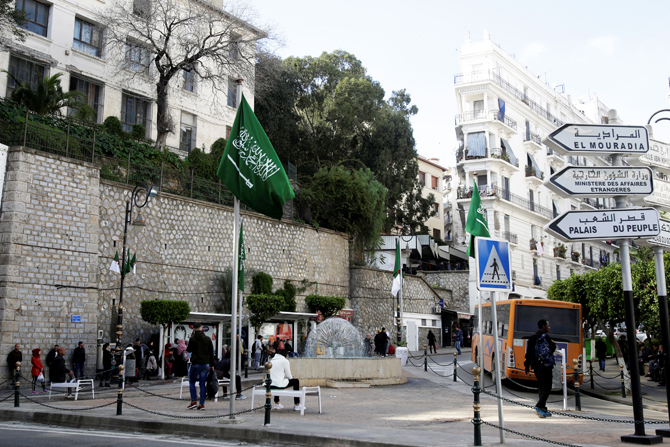
Algerian and Saudi flags are pictured in Algiers ahead of the visit of Crown Prince Mohammed bin Salman to Algeria on Dec. 2, 2018. (REUTERS/Ramzi Boudina)
Before that, the crown prince visited Bahrain, where he was received by King Hamad and held talks with Crown Prince Salman bin Hamad.
As part of efforts to expand Saudi-Bahraini cooperation, he inaugurated a pipeline through which 220,000 barrels of oil are expected to flow daily.
The UAE was the crown prince’s first stop. In Abu Dhabi, he held talks with UAE leaders on a number of issues, including Middle East security threats and their impact on regional stability.
Saudi Arabia “is assuming a pivotal role in efficiently confronting the challenges besetting the region, and is spearheading efforts aimed at ensuring security, stability and development for the region’s peoples, not to mention its good offices to achieve peace and safety across different parts of the world,” said Abu Dhabi Crown Prince Mohammed bin Zayed Al-Nahyan.










